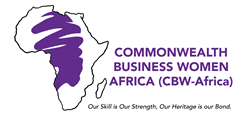Personal Development
A personal development plan is an action based plan which looks at awareness, values, reflection, goal-setting and planning relating to one’s career, education and self-improvement. It will usually include a record of a person’s aspirations, strengths and weaknesses, education and training and the steps in which you may take to reach your future goals. The first step of a personal development plan is to identify your strengths, weaknesses, skills and flaws, you must then identify your long term aims and future required skills and finally you must set a time line of short term goals to achieve your long term aims.
“Personal development helps you work through your fears, self-limiting beliefs, and habits that hold you back from being, doing and having what you want. Personal development is the road to increased self-esteem, and self-confidence. Personal development allows you to take more initiative and develop your leadership skills in order to pursue your purpose, and passion.”
A personal development plan can be motivational as it actually sets out a visual plan of action that you may take towards your goals, a written plan can be followed and evaluated much easier. Identifying your strengths can help boost self esteem and can help you recognize what career choice may be suitable to you due to your strong points. Being able to discuss your skills will bring about more confidence and will place you in a better position when talking about your strengths in future interviews. Recognizing your weaknesses allows you to work through reducing these weaknesses and improving them. This may give you better problem-solving skills and may remove stress.
A person may feel more focused upon making a PDP as they can understand the steps necessary to fulfil their goals and the implications involved. A personal development plan, as it states in the title, is personal and is not a company-wide plan as most targets are, it is specific to an individual. When targets set out in the plan are met, the person will feel some sense of achievement and progression toward their long-term goals.
Although there are some disadvantages to personal development plans; the format of these PDP’s are very rigid and as circumstances change on a daily basis you may not follow the plan properly. These plans are often optimistic and can get an individual’s hopes up when they may not be capable, or have the resources to complete the tasks they have set.
In relation to a business, personal development plans are recognised as being excellent motivators. If a company helps an employee create a personal development plan, they may feel valued due to the company investigating time and effort into helping them prepare for their future. This can trigger a number of different effects; the employee may feel more loyal to the company and so staff retention may rise, the employee may feel more appreciated and comfortable in their job and so productivity could grow and the employee may even feel more determined and so innovation and efficiency may improve. Along with all of these possible improvements, a motivated work force will develop business performance and in turn the reputation and status of a company.
Although there are also disadvantages of personal development plans for businesses; once a person has identified weaknesses, training needs or development steps, the business has an obligation to help fulfil these requirements, if a company cannot do this it may be a disincentive. This may be because of structure within the business, money or resources, but failure to grant the requests of an employee can have opposite effects of the advantages. Staff may look elsewhere to fulfil their objectives and so staff turnover may increase, motivation may be effected and so business performance could drop. For businesses, it may be wiser to avoid personal development plans so to prevent disappointment and low morale from their employees.
All Categories
Recent Posts
DO YOU HAVE TO BE AFRICAN TO JOIN CBW-AFRICA?
Our Name – Commonwealth Business Women Africa (CBW-Africa)
+0123 (456) 7899
contact@example.com














